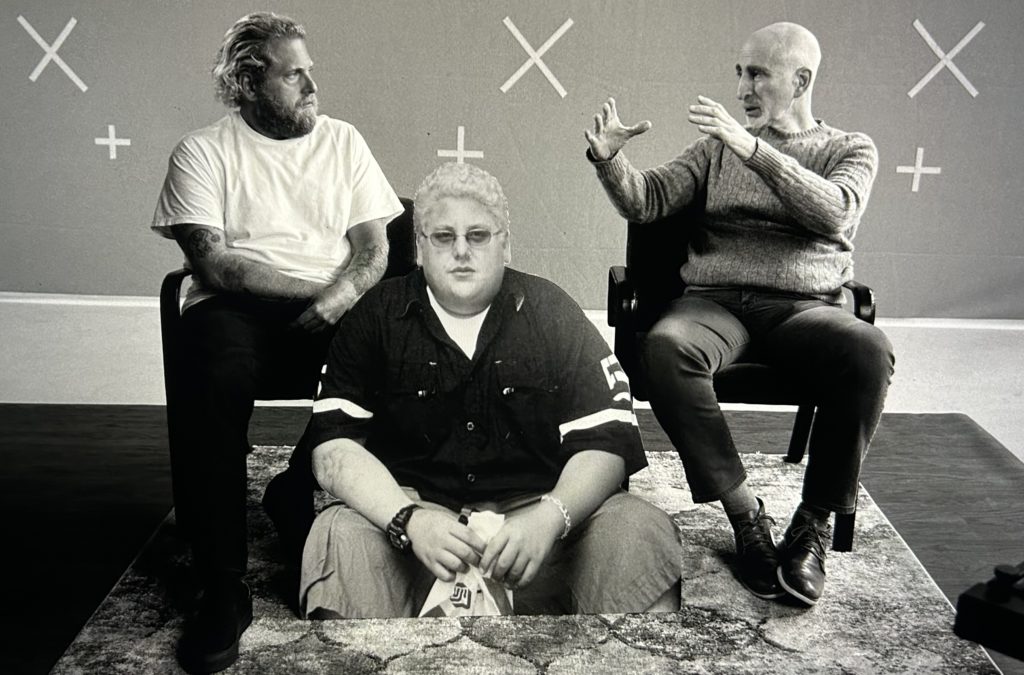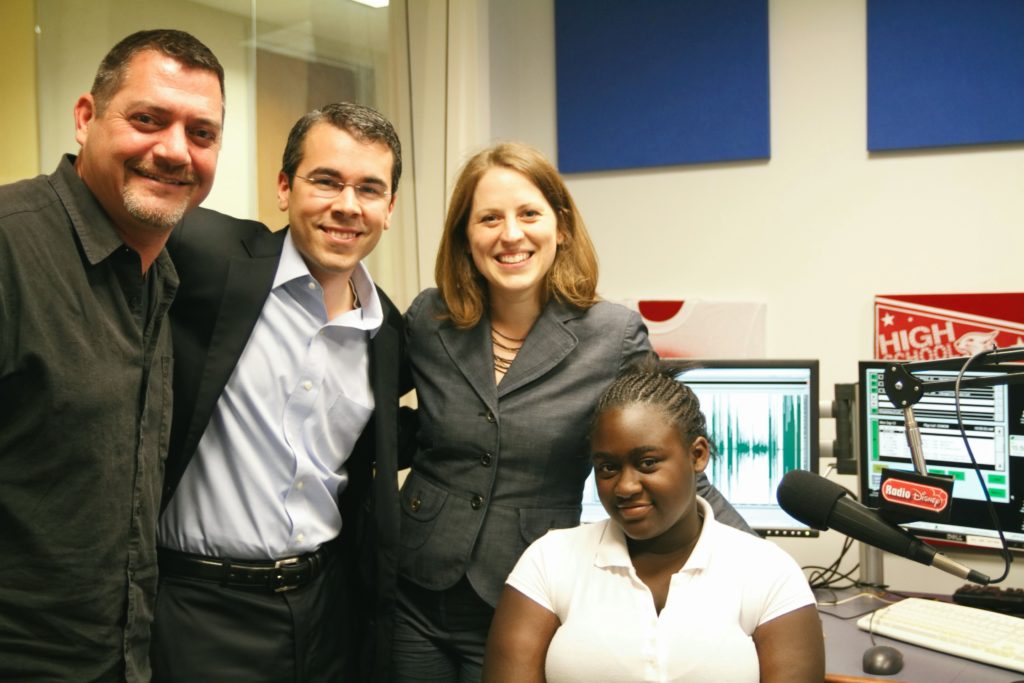Whoever you are, there are two of you. Two different people in there. One of them you don’t like very much. And that animus can inflict a ton of pain on the one that you do like.
If this is something you’re not aware of, don’t fret. It’s tricky. In fact, it is awareness — more specifically, consciousness — that is the only way for us to discern between the two.
Most of the time we are not very conscious, but when we are — when we can remove our mind from its robotic track of following one conditioned response/thought to the next — that’s where our superpower lies. It is the essential key that unlocks our ability to experience real peace and true love.
Over the last week, not only did I receive a stark reminder of this, but also a new way of looking at it. This gift of fresh perspective happened through two sources that were completely unrelated — except they weren’t. One was a great new book written by a friend of mine, and the other was a newly released documentary recommended by another friend.
In the film Stutz, actor Jonah Hill turns the tables on his longtime therapist, Phillip Stutz, in an extended “session.” He states up front that his goal is to share Stutz’s methods that have been helpful to his mental health. The twist comes when Hill realizes he’s failing in his effort to be disconnected from the process as the interviewer. They decide it would be better if he became more personally involved — right then and there.

Jonah Hill has been a huge star in Hollywood since he was a kid. Though known early on for his comedic roles in TV and film, he earned Oscar nominations for Best Supporting Actor in 2011 and 2014 for playing more serious characters in Moneyball and The Wolf of Wall Street.
But all of Hill’s notoriety and accolades didn’t make him a contented person. Far from it. He tells Stutz that when he first came to see him five years ago, at 33, he “had no healthy self-esteem.” Hill was overweight for many years. He lost a ton, but that didn’t help either. And you can see Hill still struggling with this angst.
Stutz explains that the one thing we all have in common is something he calls “The Shadow.” It’s that person inside ourselves that we’re ashamed of. The only question is how conscious we are of our Shadow.
In one of the film’s most powerful exchanges, Stutz tells Hill to close his eyes and to try to visualize his Shadow. And then, as a cardboard cutout of Hill as a kid is placed into the frame between them, he describes it:
“To me, it’s a 14-year-old boy who’s overweight and has acne. And feels very undesirable to the world.”
“Hello? McFly?” That was me. More pudge than overweight, but I hated it. And beyond the acne, I didn’t like the rest of my looks much either.
Despite being live on TV for eight years daily — and having plenty of other life experiences that made clear I’m not hurting anyone’s eyes — there are times when I still feel that way. But it’s really more of a mental state; stuck in seventh grade at that new school, thoroughly uncool, and taking social cues from friends I hardly knew. My Shadow.
We’ll go back to Stutz in a minute, but first I want to quote Chris Balme’s wonderfully insightful new book, Finding the Magic in Middle School. Chris founded the Spark program in San Francisco to invigorate middle schoolers’ interest and persistence through apprenticeships. We met a decade ago when he expanded Spark to Chicago and Philadelphia. If that weren’t enough, he also founded his own middle school.

For the parents of middle-schoolers, reading Chris’s book just might be the most important thing you ever do for your child. But as it relates more specifically to the Shadow that Hill described, Balme explains just how much kids can start falling into this ditch of negative identity at the middle-school level:
“If (kids) do not feel safe psychologically — for example, because they witness bullying or intense social exclusion, or a code of values that does not allow them to explore their identity—then they are more likely to choose the path of the false self. That means copying someone else, rather than doing what is authentic to them. In copying someone else, they are trying to find social safety. The logic goes something like this: That person seems to know what to do — they don’t get bullied or teased, they seem confident — so I’ll do whatever they’re doing.”
That also described me as a kid. And millions of kids. There’s a range of reasons why this happens, and Chris goes deeper into them in the book. Part of it is just adolescence.
But connecting this back to Stutz, one of the things that people struggle with long past their formative years is how they’re seen by others. We all carry insecurity; it’s only a matter of degree. No matter how super-confident some may seem at times, we’re all still just human beings. And eventually, every single one of us winds up in front of the mirror.
Stutz makes the point that the more we ignore our Shadow, the more vulnerable we become — unconsciously — to all of the external crap. Hill’s real time struggles are evidence to the fact. Stutz explains that instead of suppressing the image of that pimply, chubby 14-year-old kid, Hill should fully acknowledge that that person is still a part of him:
“The Shadow needs attention, but not from the world. He doesn’t need an Academy Award. The only being whose attention matters to your Shadow is you…if you don’t pay him attention or respect, he’ll make you do things that are actually destructive.”
Hill then does an exercise with Stutz, and he seems to internalize the lesson:
“If I’m content with my true self, then other people’s opinions affect me way less.”
Understanding and becoming familiar with something scary in life can often make it a lot less threatening. And when you realize where your Shadow comes from, your dislike for it can quickly turn into compassion: You may even want to throw your arms around the damn thing!
I realize that this stuff reads pretty touchy-feely. And that’s because it is. But it’s also universal. You see it in people’s behavior every day. The most self-assured person who tells you that there’s not a hint of this in their psyche — some ugly event or memory from the past that colors parts of their present — is full of shit.
Or they’re just not conscious enough to know it.
The older I get, the more days I live where I don’t give a Vegas fuck what most people think. And if something’s eating at me, I remember to be conscious.
But there are other days when that Shadow kidnaps my thoughts and actions, and I’m not even aware of it — until I am. Which is why watching all of Jonah Hill’s continuing introspection and angst — and Stutz’s explanations for it — hit so close to home.
A new book I’m coauthoring is coming out soon, and I feel great about it. At the same time, I have no illusions that any new project I take pride in is going to magically vanish the Shadow. History has taught me it doesn’t work this way.
I announced above that there were two sources that gave me this eye-opening jolt last week. But there was a third: HBO re-ran a documentary about Steven Spielberg. I’d seen it before, but the very same sound bite from this storytelling genius — about his own insecurities born in his childhood — grabbed me in exactly the same fashion as it had the first time:
“The second I finished a movie I wanted to start another one. Because I felt good about myself when I was making a film. But when I had too much time to think, all of those scary whispers would start up. It was not fun to be me in between ideas and projects.”
Hello, again. “Think McFly, think!” {can you possibly name the director?}
Even Steven Spielberg “had” a Shadow. I’ll bet you 100-1 he still does on some days. Because we all do.
Hug that Shadow tight. It’s a selective, composite memory of past experiences — and it’s okay. It’s not who you are today. And maybe it never was. The clearer you can see this alter ego — and how it evolved in the first place — the less control it will have over who you are in the next moment.
And once you’re aware enough to try this tactic, you have a permanent get-out-of-mental-jail-free-card. The only trick is remembering to do it.


